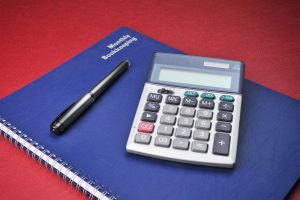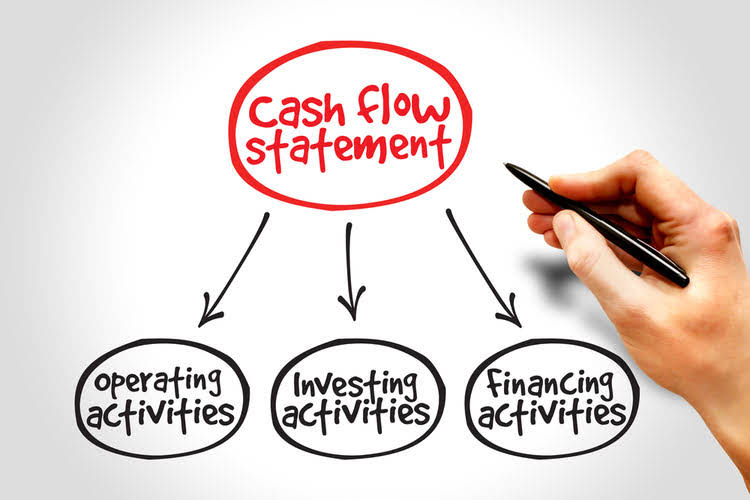
This blog post will share everything you need to know about sole trader accounting. Now that you know how to find the right accounting software for you, you’ll need to think about what you’ll need to log. Free trials are essential to take advantage of when choosing your accounting software, as they give your platform a test run without making an actual commitment. Accounting also covers the more general process of managing your accounts, including strategic planning.
Keeping Track of Sole Trader Business Expenses
Let’s take a look at what sets these types of business structures apart from the sole proprietorship. Using a separate business bank account makes it easier to track business-related transactions. Many accounting tools link directly to your account, automating this process.
Consulting Professionals for Guidance
- The right expenses software can simplify reimbursements, save time, and provide better control over your company’s finances.
- Set aside time each month to reconcile all accounts and use this process as an opportunity to review statements for any unusual activity or potential fraudulent charges.
- It is important to note that there are consequences for not meeting your tax obligations.
- As a sole trader, you have complete control over your business’s finances.
- It also has a range of features for invoicing and tracking income and expenses.
- As a sole trader, it’s essential to prepare accurate financial statements regularly to stay on top of your finances.
- Some deductible expenses include operating costs, supplies, accounting fees, advertising, machinery, and depreciation.
As a self-employed individual, keeping accurate and up-to-date books is an essential part of running your business. However, manually entering data into spreadsheets or traditional bookkeeping software can be tedious and time-consuming. Here are some of the benefits of using bookkeeping templates for self-employed individuals. Separate business and personal accounts to avoid messy payments, retained earnings make record keeping easy, and a proper tax return preparation. Sole traders must separate their personal and business bank accounts to avoid mixing up expenses, though not legally mandatory. When it comes to software, there are so many benefits to using a digital accounting and bookkeeping platform.
Sole trader taxes
Sole trader businesses are required to maintain good bookkeeping records. Self-employment means submitting self-assessments, and you need good records to do that accurately. Beyond that, it’s also helpful for a sole trader to have a clear view sole trader accounting of their financial position.
Bank Charges
- For tax purposes, you’ll need to stay on top of regulations and deadlines.
- Accounting might seem a bit like a tightrope walk – daunting at first but manageable with some balance and focus.
- It also gives you an accurate picture of your overall financial health so that you can plan accordingly and make informed decisions about how best to manage your money.
- This represents quite an upgrade in complexity from the basic accounting system outlined in this article for a sole proprietorship.
- Compare entries with bank statements, credit card bills, client invoices, etc, monthly.
- These tools provide real-time financial insights, enabling swift decision-making.
- It will also save time, as your accountant can prepare financial statements, tax returns, and other reports with access to accurate and up-to-date bookkeeping records.
The owner has complete control over all the decisions being made and receives all profits generated by the business. A sole proprietorship is a common business structure for entrepreneurs because it is easy to set up and has minimal regulatory requirements. However, there are some important considerations, so let’s determine what qualifies a business as a sole proprietorship. Compliance with MTD is mandatory for VAT-registered businesses and will expand to include income tax self-assessment.

Monthly Expense Summary

The Australian Government Business website is an excellent place to start as Coffee Shop Accounting they provide comprehensive information and tools for small business owners. In addition to the business.gov.au, there are also various online courses and tutorials that can help you improve your bookkeeping skills. This includes managing inventory as a sole trader to ensure that you have enough stock on hand to meet demand while avoiding overstocking. Additionally, reconciling bank accounts and credit card statements regularly can help you avoid overdraft fees and other unnecessary expenses. Additionally, accurately tracking outstanding items like bad debts will help manage inventory as a sole trader effectively while maintaining proper financial reporting standards for tax purposes.

Key Considerations for Starting Business as a Sole Proprietor
It’s important to note that limited liability in a partnership only applies to the partner’s personal assets. Any business assets or funds are separate from personal assets and can be used to settle any business debts or obligations. This limited liability feature is one of the advantages of forming a partnership.
- This means keeping records of all transactions related to taxes including receipts or invoices for tax payments made.
- Some sole traders hire an accountant to do this work for them, but many find that their financial records can be managed on their own.
- FreeAgent offers a FREE version if you hold a business account with either NatWest, Royal Bank of Scotland or Ulster Bank NI.
- This encourages investment in infrastructure by offering immediate tax relief.
- Tax laws are as dynamic as the seasons – they change, and you’ll need to adapt.
- The auditing process begins with planning where auditors review documentation provided; this could include previous audits reports or details of your financial position.
- This reduces the likelihood of having large amounts of bad debts at year-end, which can negatively impact sole trader net income and cash flow.
FreeAgent offers a FREE version if you hold a business account with either NatWest, Royal Bank of Scotland or Ulster Bank NI. These documents can be kept in paper format or digitally but must include relevant details such as the date, amount received or spent, and a brief transaction description. It helps them reduce tax bills without catching the eyes of HMRC and inviting an investigation.

It offers a range of features, including invoicing, expense tracking and reporting. One advantage of Zoho Books is the range of business apps available for growing businesses. Xero is another great online accounting software which includes all of the features found in QuickBooks but is more expensive. It also has a range of features for invoicing and tracking income and expenses. It has a user-friendly dashboard and lots of training videos as well as integration with 3rd party apps.
